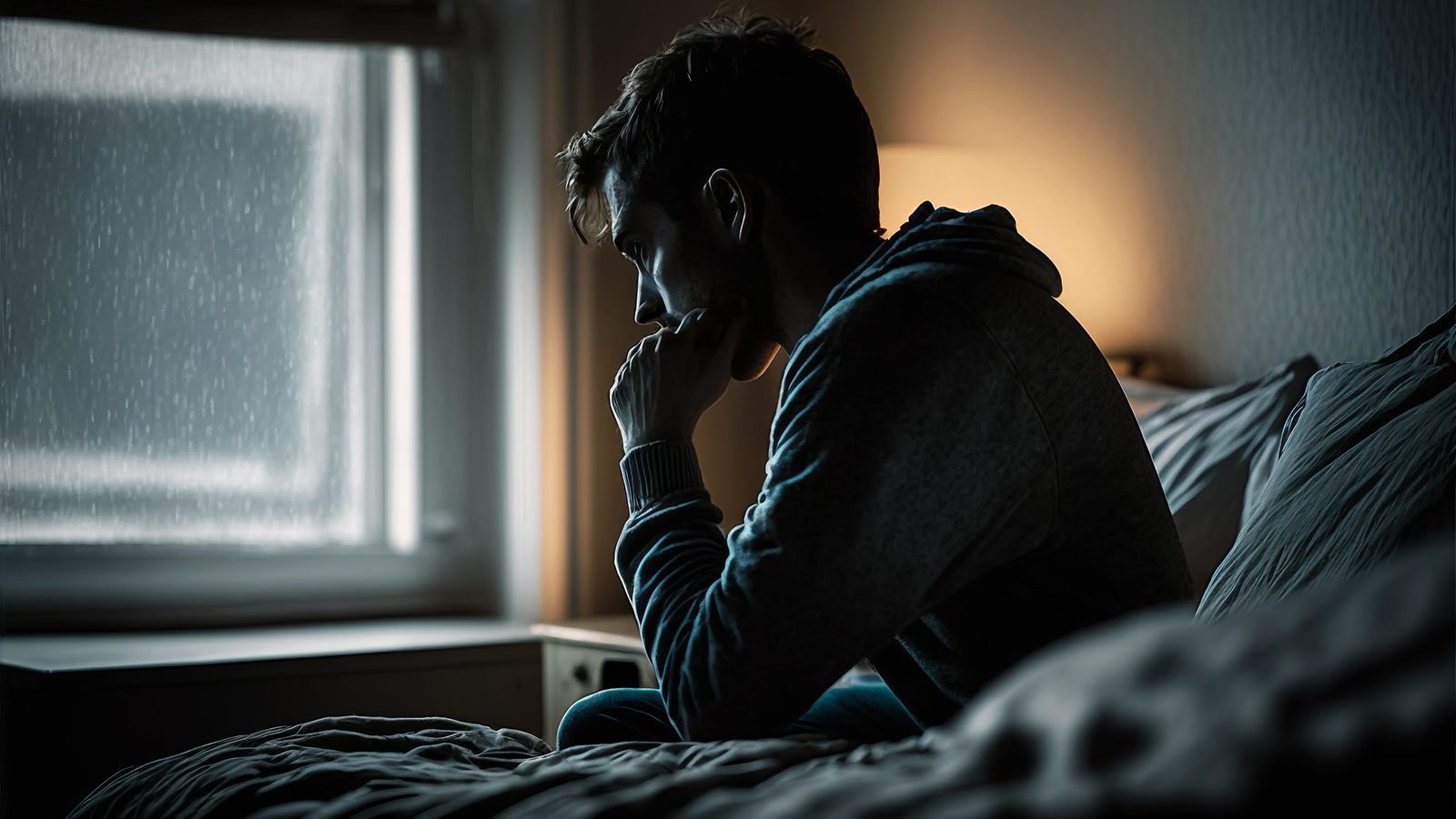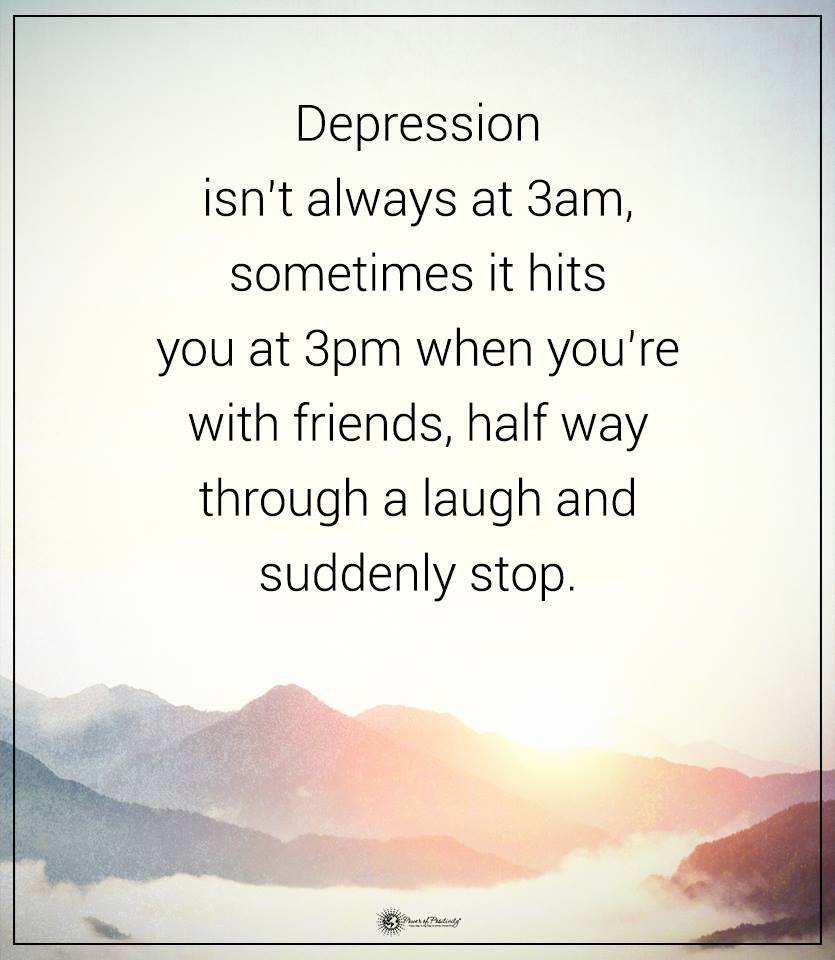Everyone can experience depression, affecting their thoughts, feelings, and actions. Knowing the signs and symptoms of depressed men can help you, or someone you love, make a positive change.
When you identify the signs, it can lead to diagnosis and treatment rather than suffering without help. It can also prevent life-threatening consequences or other harmful situations. Men who are depressed won’t experience every symptom. They may only show a few of them, but they can experience all of them. However, don’t disregard a few signs because they aren’t all present.
NOTE: We reveal the symptoms of depression in women in a separate article.
Defining Depression
While everyone experiences bouts of sadness, irritability, and trouble sleeping, it typically passes after a few days. When it lasts longer, it indicates a mood disorder that can lead to severe symptoms. It interferes with daily activities and the ability to handle emotions.
The symptoms must occur for at least two weeks for a diagnosis. It can affect a man at any age, and treatment can help them feel better and return to their daily routine.
Experts indicate that at least six million men experience depression each year. It looks different in men than women, but there are common signs to watch for.
Differences Between Depression in Men and Women
Research shows that women are more likely to experience depression than men, but that doesn’t make it less of a concern. The study shows that men are often underrepresented in statistics, making it hard to determine the actual number.
Depression rates in women are twice as high as in men, with differing symptoms being a reason for the wide prevalence gap. Women often express sadness, while men don’t always experience that sign.
Men often feel the need to hide their emotions to look more manly. This pressure can make it harder to notice the signs in men, leaving their mental health undiagnosed. It can also prevent them from seeking help because they don’t want judgment from others.
Additionally, their symptoms are often different than women’s, making it even harder to identify. Men also don’t talk about their emotions or seek treatment as often, furthering the lower number of diagnosed cases.
Ten Signs of Hidden Depression in Men
The signs in men differ from those of women, so it’s essential to recognize the differences. Some of the things you should watch for in a man include the following:
1 – Poor Sleep Schedule
Sleeping too much or not enough can indicate depression in men. These sleep disturbances also increase the risk of suicide, making it an essential sign to notice. A depressed man might have trouble falling asleep, wake up many times, or sleep for a long time without feeling refreshed.
2 – Losing Interest or Feeling Hopeless
If a man loses interest in things they once enjoyed, it can be a sign that they’re depressed. They might stop engaging in hobbies or spending time with loved ones and friends. He may withdraw from people to make it easier to pretend he’s okay.
A depressed man might also take on a hopeless outlook on life, even if he can’t explain it. Rather than feeling sad, he’ll lose his drive, feel empty, and develop a pessimistic view of the future.
3 – Exhibiting Controlling, Violent, or Abusive Behavior
Men often become controlling, violent, or abusive when they’re depressed. They struggle to hold their emotions together, and it comes out aggressively. It can cause them to develop a hostile attitude, making it hard to recognize it as a symptom.
4 – Noticeable Weight Fluctuations
Depression can lead to an appetite change in men. It can make him eat more or less than usual, triggering weight fluctuations. You might notice that he gains or loses a noticeable amount of weight.
5 – Experiencing Physical Symptoms
Men don’t always share their emotions, but they’re more likely to discuss physical symptoms. If you recognize any of these physical signs, it could indicate depression. Look for the following signs if you’re concerned:
- chest tightness
- digestive issues, including diarrhea, gas, or constipation
- headaches
- unexplained body pain
- racing heart
6 – Self-medicating With Drugs, Alcohol, and Other Risky Behavior
Depressed men often engage in risky, self-destructive behavior like self-medicating. They convince themselves they can handle it and overcome their mental health troubles without help. However, self-medicating with drugs and alcohol can worsen the problems.
If you notice any of the following risky behaviors, it could indicate depression:
- using drugs recreationally
- gambling
- drinking too much alcohol
- reckless driving
- unsafe sexual practices
7 – Becoming Frustrated, Irritable, or Angry Quickly and Unexpectedly
Studies show that between 30 and 40% of men with depression experience a short temper. It involves frustration, irritability, or unexplainable anger.
8 – Experiencing Sexual Dysfunction
Being depressed can lead to sexual dysfunction, with one in four men diagnosed with erectile dysfunction also having depression. It can lower sex drive, disrupt sexual arousal, and prevent orgasms.
9 – Having Trouble Concentrating or Experiencing Low Energy
Experts indicate that around 90% of people with depression experience overwhelming fatigue. It could result from poor sleep quality, and it can make a man have trouble concentrating. He might become easily distracted until it interferes with their work and personal life.
10 – Being Evasive or Finding Ways to Escape
If a man becomes evasive, it might indicate that he’s trying to escape his troubles. His depression can cause him to look for ways to escape his thoughts or avoid dealing with his symptoms.
He might start working out excessively or putting in extra hours at work. Men often think ignoring their issues and focusing on other things will help, but it can worsen the situation.
Five Causes of Depression in Men
Multiple things could cause depression, and some men are more likely to experience it than others. Some of the risk factors involve the following:
- Genetics: A family history of mental health disorders can make it more likely.
- Illness: Serious illnesses can trigger depression as they’re life-changing and worrisome. It could include diabetes, heart disease, cancer, and other diseases.
- Environmental stress: Stressful or devastating situations can lead to mental health issues. It could involve losing a loved one, financial problems, relationship struggles, work issues, or other life changes.
- Medications: Some prescription medications can increase the risk.
- Trauma or abuse: Those who experienced trauma or abuse are more likely to feel depressed.
Treating Depression
This condition is treatable, so don’t lose hope, but it must get diagnosed for treatment to be possible. Seeing a mental health professional for a diagnosis can save lives by allowing people to get help before it’s too late.
Suicide rates are higher among men, up to four times more likely than women to attempt it. It’s even more common for those who served in the military. These statistics show that it’s essential for men to seek treatment to live good lives.
A healthcare professional can help with finding the best treatment options. One of the best treatment options is talk therapy, although medications get prescribed frequently. A psychotherapist (or talk therapist) might suggest other types of therapy, including:
- cognitive behavioral
- problem-solving
- interpersonal
- psychodynamic
Don’t wait for a scheduled appointment if you or someone in your life experiences suicidal thoughts. If that happens, immediate help is necessary. You can call 800-273-8255 for the National Suicide Prevention Lifeline or dial 911, whichever gets you the quickest help you need.
Behavior and Lifestyle Changes That Help
While nothing can replace professional guidance, you can make lifestyle changes to help ease your symptoms. Consider making the following changes in your lifestyle and behavior:
- consume a healthy diet
- exercise regularly
- practice stress management techniques
- avoid isolation
- get plenty of sleep
- avoid high-risk activities and self-medication
Helping Someone with Depression
Helping a friend or loved one requires understanding that he can’t stop feeling the symptoms. You can help him find a professional and set up an appointment to get the treatment he needs. Sometimes pointing out that you think he needs help can get him started in the right direction.
It’s also essential that you practice patience and encouragement when offering support. Listen to him when they want to talk and clarify that you’re present for what he needs. Additionally, don’t ignore comments about suicide because speaking up can save his life.
Other ways to help someone involve encouraging him to increase physical and social activity. Invite him to do things and keep him company at home when he doesn’t feel like getting out. It’ll also help if you encourage him to keep doctor’s appointments and be honest with his provider.
If you’re suicidal, spend time with friends and loved ones who will support and listen to you. Stay active and stick to your daily routines. Tackle daily tasks by breaking them into smaller goals, and avoid self-medicating so you can have a clear mind.
Final Thoughts on Hidden Signs of Depression in Men
Depression isn’t diagnosed as frequently in men as in women, making it harder to diagnose. Identifying the signs is essential to improving the situation and saving a life.
If you or someone you know need immediate help, call 911 or seek emergency medical treatment. Otherwise, getting help before it’s too late is essential. Treating depression is life-changing and can help with living a fulfilling life.

















 Community
Community

